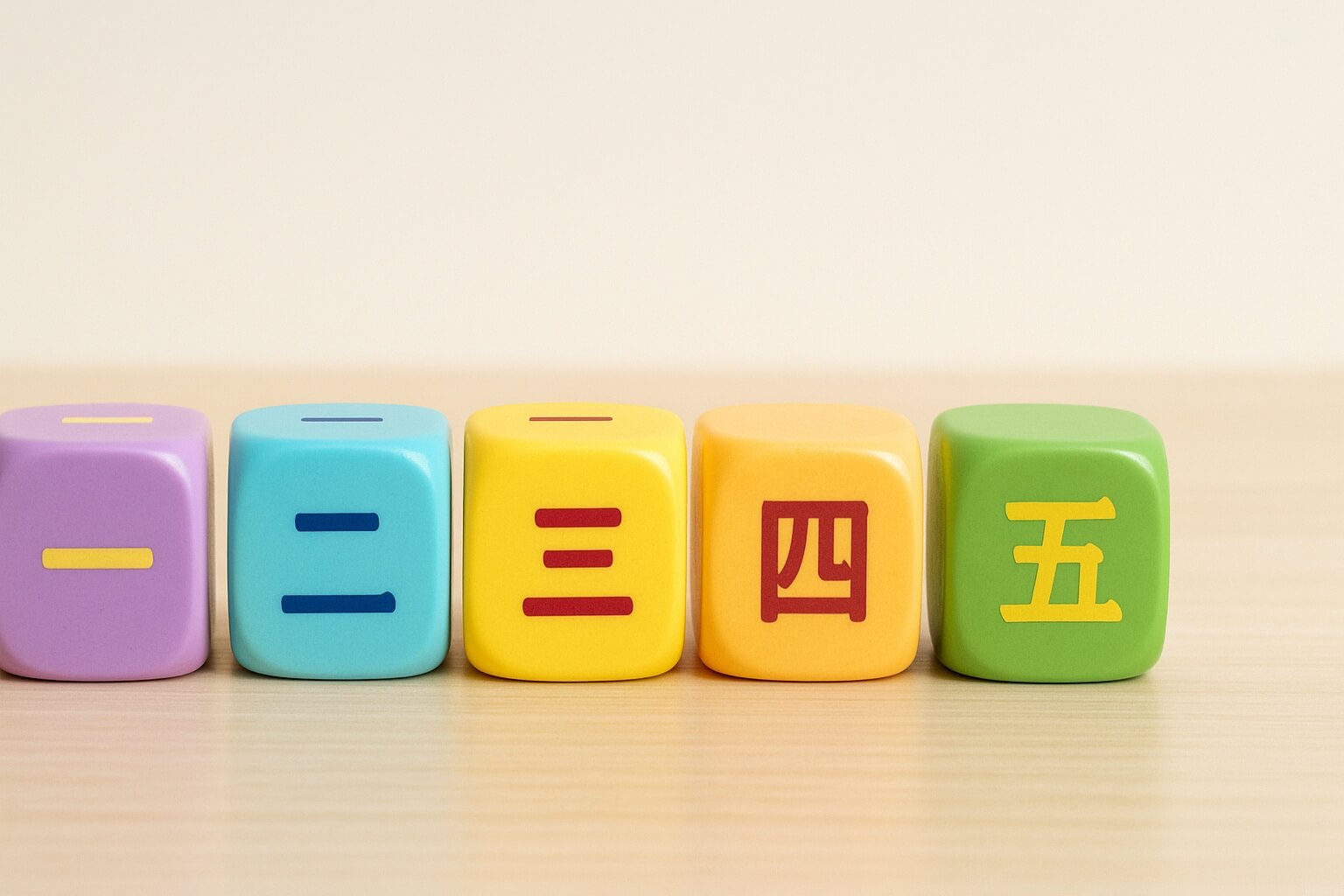
Numbers form the foundation of every language, and Japanese is no exception. Whether you’re traveling to Japan, studying the language, or exploring Japanese culture, knowing how to count is essential. Here’s your comprehensive guide to learning numbers in Japanese.
The Fundamental Numbers (1-10)
Begin by learning these basics:
- 一 (いち – ichi)
- 二 (に – ni)
- 三 (さん – san)
- 四 (し/よん – shi/yon)
- 五 (ご – go)
- 六 (ろく – roku)
- 七 (しち/なな – shichi/nana)
- 八 (はち – hachi)
- 九 (きゅう/く – kyuu/ku)
- 十 (じゅう – juu)
Note: Numbers 4, 7, and 9 have two readings. Typically, よん (yon), なな (nana), and きゅう (kyuu) are used to avoid confusion with similar-sounding words.
Counting Beyond Ten
Counting beyond ten in Japanese is straightforward and logical:
- Eleven (11): 十一 (じゅういち – juuichi)
- Twenty (20): 二十 (にじゅう – nijuu)
- Twenty-five (25): 二十五 (にじゅうご – nijuugo)
- Fifty-seven (57): 五十七 (ごじゅうなな – gojuunana)
You simply combine numbers. For instance, “twenty” is expressed as “two tens” (二十), and “twenty-five” is “two tens five” (二十五).
Hundreds, Thousands, and Beyond
- 100: 百 (ひゃく – hyaku)
- 1,000: 千 (せん – sen)
- 10,000: 万 (まん – man)
Examples:
- 130: 百三十 (ひゃくさんじゅう – hyakusanjyuu)
- 4,200: 四千二百 (よんせんにひゃく – yonsennihyaku)
- 12,000: 一万二千 (いちまんにせん – ichimannisen)
Counting Objects: Counters
Japanese uses specific counters depending on the type of objects you’re counting:
- People: 人 (にん – nin), e.g., 三人 (さんにん – sannin, three people)
- Flat objects: 枚 (まい – mai), e.g., 二枚 (にまい – nimai, two sheets of paper)
- Long objects: 本 (ほん – hon), e.g., 一本 (いっぽん – ippon, one pencil)
Special Pronunciations
Some numbers have unique pronunciations depending on their usage:
- 300: 三百 (さんびゃく – sanbyaku)
- 600: 六百 (ろっぴゃく – roppyaku)
- 800: 八百 (はっぴゃく – happyaku)
- 3,000: 三千 (さんぜん – sanzen)
- 8,000: 八千 (はっせん – hassen)
Everyday Applications
Knowing numbers is helpful for everyday life:
- Asking the price: 「これはいくらですか?」 (Kore wa ikura desu ka? – How much is this?)
- Giving your phone number: 電話番号 (でんわばんごう – denwa bangou)
- Reading dates: 「今日は何日ですか?」 (きょうはなんにちですか? – Kyou wa nan nichi desu ka? – What’s the date today?)
Quick Tips for Remembering
- Regular practice, especially counting everyday items around you.
- Learning numbers through songs or rhymes.
- Using flashcards to speed up memorization significantly.
- The language learning app bunpo is also a great way to review, with simple explanations and fun, quick exercises.
Mastering Japanese numbers takes practice, but with these basics, you’ll confidently handle everyday situations and conversations in Japanese. Happy counting!



